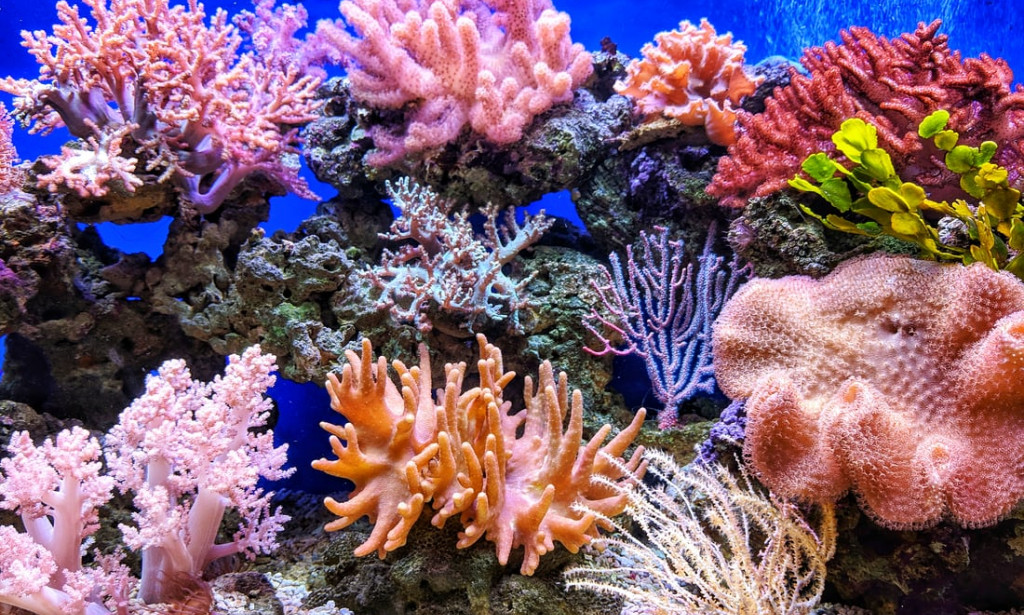Coral reefs refer to a group of organisms that live in water that are attached by a calcium carbonate. They are sponges, crabs, starfish, jellyfish, and other creatures. Coral reefs are composed of tiny animals that stay stagnant at one place. In addition, they are a source of tourism and fisheries. Coral reefs offer many benefits to human beings, as we shall see below. Coral reefs sometimes enlarge until they appear above the water forming a coral island where human beings live. This occurs because coral reefs are mostly found in the shallow water levels. Moreover, they are known to be the most productive water system because they contain nutrients that are stored in the solid matter. Coral reefs provide food for both animals and plants hence they are able to recycle nutrients. The plants get sunlight that is then converted to energy through photosynthesis; they pass this energy to the animals that in turn give them fertilizer in the form of waste (Conservation International 8). Man then consumes these water organisms. Another important benefit of coral reefs is that they offer provisioning goods that include food, water, and forage. Fish that is food for human beings feed on the reefs that are located at the bottom of the water. They absorb carbon dioxide from the water making it clean and safe for the aquatic animals. Additionally, coral reefs help the fish to travel a long distance to search for food because they are hence escaping its prey and they serve as forage for the fish. Coral reefs are likewise known for regulating services like water quality, flood regulation.

You must be logged in to post a comment.